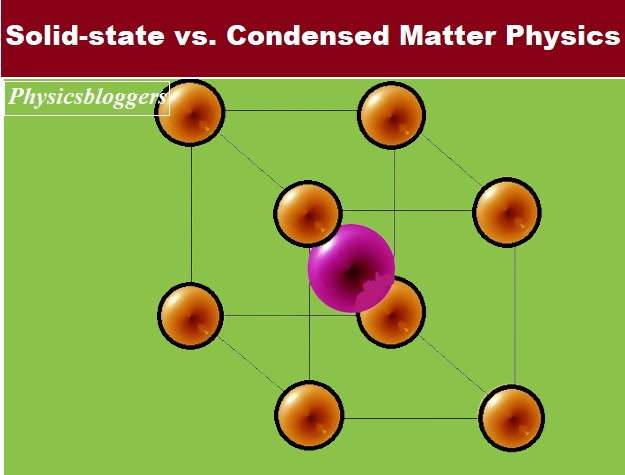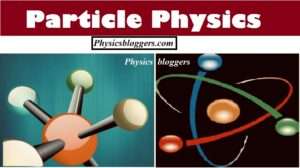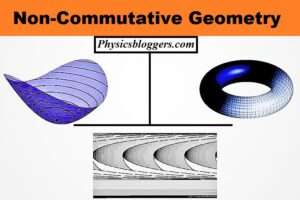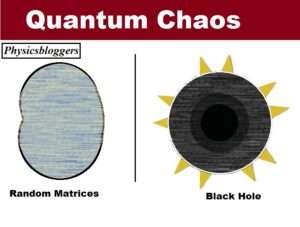Solid-state vs. Condensed Matter Physics

Solid-state vs. condensed matter physics
Introduction

Strong state physical science and consolidated matter physical science are frequently utilized reciprocally, as the two of them manage the properties of materials in the strong state. Nonetheless, there is an unobtrusive distinction between the two.
Strong state physical science centers around investigating the properties of materials in the strong state, for example, precious stone designs, electronic properties, and warm properties. It tries to comprehend how particles orchestrate themselves in a strong, how they vibrate, and how they communicate with one another. This field of concentrate additionally incorporates the examination of imperfections, debasements, and surfaces in solids, as well as the way of solids under outrageous circumstances like high strain, high temperature, and high attractive fields.
Dense matter physical science, then again, is a more extensive field that envelops the investigation of the actual properties of all types of issues that are in a consolidated state, including solids, fluids, and a few gases. Notwithstanding the properties concentrated on in strong state physical science, consolidated matter physical science likewise remembers the investigation of the way of behaving of materials for the fluid and vaporous states, as well as the properties of superconductors, superfluids, and other fascinating conditions of issue.
The job of Strong state material science and dense matter physical science in day-to-day existence
Strong state physical science and dense matter physical science assume a critical part in our day-to-day routines in more than one way, regardless of whether we don’t know about them. The following are a couple of models:
Electronic gadgets:
Strong-state material science is fundamental in the planning and improvement of electronic gadgets like semiconductors, diodes, and microchips. These gadgets depend on the way electrons behave in strong-state materials, and the field has made huge commitments to improving current innovation.
Materials science:
Consolidated matter physical science assists with understanding the properties of materials used in daily life, such as metals, polymers, ceramics, and glasses. This information is utilized in the improvement of new materials with further developed properties, such as lightweight amalgams, solid composites, and high-level materials utilized in aviation and clinical applications.
Energy:
Strong-state and dense matter physical science assumes a critical part in energy research. For instance, sun-oriented cells convert daylight into power, depending on the way electrons behave in strong-state materials. Moreover, energy capacity advances; batteries and power modules additionally depend on the properties of strong-state materials.
Transportation:
The advancement of superior execution materials utilized in present-day transportation, like lightweight metals and composites, is conceivable because of the bits of knowledge acquired from strong state and dense matter physical science.
Wellbeing:
The improvement of clinical imaging advances, such as attractive reverberation imaging (X-ray) and positron outflow tomography (PET), additionally depends on the comprehension of the properties of materials in a dense state.



